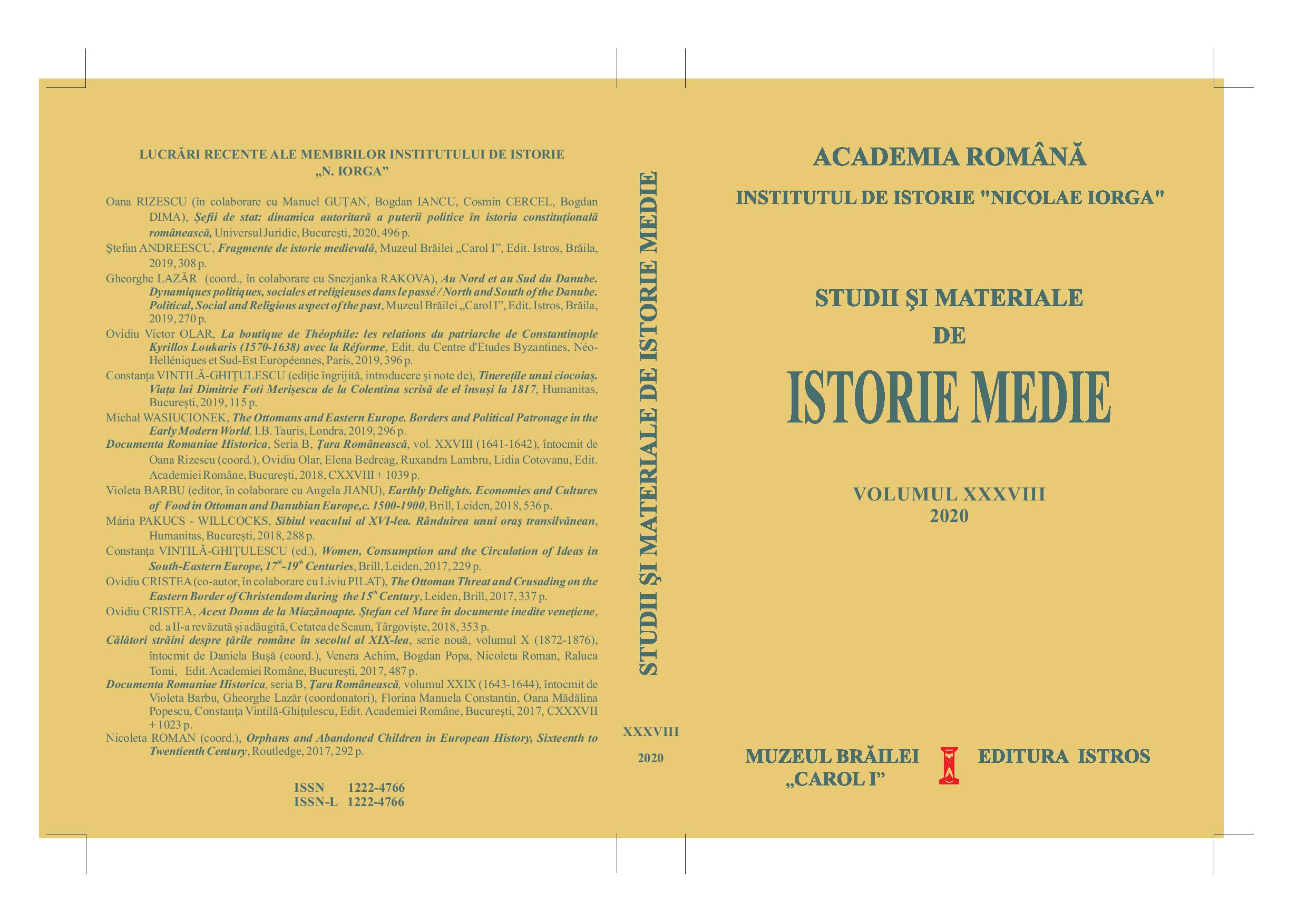VLAD DRACUL, DIPLOMAŢIA UNGARO-OTOMANĂ ŞI RĂSCUMPĂRAREA DE ROBI CREŞTINI ÎN CONTEXTUL CRUCIADEI DE LA VARNA (1444)
Vlad the Devil, the Hungarian-Ottoman diplomacy and the ransom of Christian slaves in the context of the Varna Crusade (1444)
Author(s): Liviu CîmpeanuSubject(s): History, Military history, Middle Ages, 15th Century
Published by: Institutul de Istorie Nicolae Iorga
Keywords: Vlad Dracul; Murad al II-lea; Varna crusade; ransom of Christian slaves; Hungarian-ottoman diplomacy;
Summary/Abstract: On March 5, 1445 Pope Eugene IV wrote a letter to „noble Dracul”, lord of Wallachia, demanding him to ransom from the neighbouring Ottomans Cardinal Giuliano Cesarini, who was missing after the Varna Crusade. The papal letter clearly shows that the Holy See and the Christendom were aware of Vlad Dracul special status towards Sultan Murad, which permitted him to negotiate the ransoming of Christian slaves with the Ottoman pashas at the Danube and in the Imperial Divan. The Wallachian voivode pledged allegiance to the Sublime Porte already in 1437, becoming a vassal of the sultan. Thus, he managed to negotiate the liberation of some Transylvanian Saxons captured by Ottoman raiders in 1438, likewise Alexandru Aldea, the former voivode of Wallachia, in 1436. Vlad Dracul might even have liberated his own subjects, captured during some skirmishes with the neighbouring gâzis, at the beginning of his reign, in the fall of the same year, like his predecessor did, in 1432. Vlad Dracul enjoyed sultan Murad’s trust, who reassigned him as voivode of Wallachia, after a short imprisonment between 1442-1444. During the „secret” peace negotiations with the Realm of St. Stephan, the sultan insisted on the recognition of Vlad’s second reign in Wallachia, which John Hunyadi and Despot George Branković the main artisans of the peace negotiations did, on mid-August 1444. Compelled to join the Varna Crusade, Vlad Dracul kept his troops away from any firm actions against the Ottomans. Thus, he preserved his special status towards the Sublime Porte, being known in the whole Christendom as a mediator between Christian Europe and the Ottoman Empire. The fame of his ability to negotiate the ransoming of Christian slaves from the Ottoman Empire might have been enhanced by his 1438 intervention in favour of the Transylvanian Saxons. Thus, after the disappearance of King Wladislas and Cardinal Giuliano Cesarini during the Battle of Varna (November 10, 1444), Pope Eugene turned to Vlad Dracul for the ransoming of the missed cardinal, at any cost.
Journal: Studii şi Materiale de Istorie Medie (SMIM)
- Issue Year: XXXVIII/2020
- Issue No: XXXVIII
- Page Range: 145-161
- Page Count: 19
- Language: English, Romanian
- Content File-PDF

